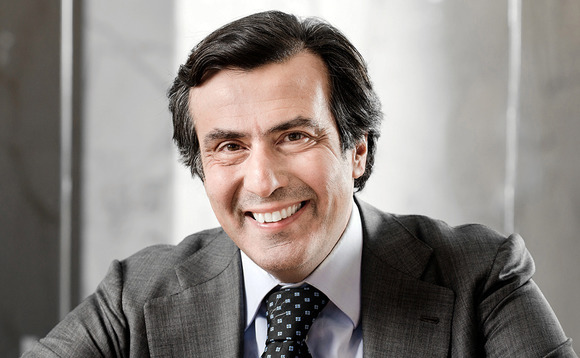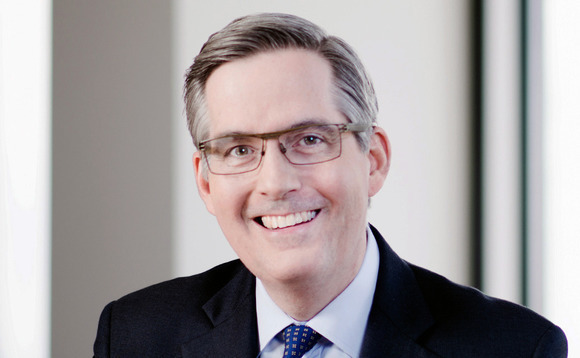
Q&A: Debevoise's Bet-Mansour and Scoville on Spacs' relevance for PE

With the popularity of Spacs in the US reaching fever pitch, E Raman Bet-Mansour and James C Scoville of Debevoise & Plimpton share their thoughts on why the strategy is so attractive for PE, what sponsors should be wary of, and whether they expect a similar uptake in Europe
Greg Gille: What makes special-purpose acquisition companies (Spac) relevant to private equity firms?
E Raman Bet-Mansour: Spacs were the biggest Wall Street story in 2020, and activity in the first quarter of 2021 already exceeded 2020's record pace. Major PE firms have joined the bandwagon on both ends by sponsoring Spacs, acquiring targets via their sponsored Spacs and exiting investments by merging portfolio companies with Spacs (ie de-Spac transactions). By sponsoring Spacs, PE firms are able to diversify their offerings beyond traditional buyout funds, offer shorter exit time horizons and offer Spac sponsors attractive economic returns (ie 20% of equity interest in the Spac for a nominal investment).
GG: To what extent are Spacs becoming a phenomenon outside of the US?
James C Scoville: An overwhelming majority of Spacs are listed in the US due to their mature legal and financial infrastructure, and a deep investor base that are familiar with Spacs. However, many Spacs listed in the US are sponsored by non-US sponsors or looking at non-US targets. We have not yet seen a proliferation of Spacs listed on European exchanges, although they are expected to gain popularity around the world as demand outstrips the US's supply. Regulators in London, Hong Kong, Singapore and other important non-US financial centres are studying the possibility of reforming their regulations to become more friendly to Spacs.
Notably, the UK sees Brexit as an opportunity to reform its listing rules to make the London Stock Exchange a more attractive listing venue, and on 3 March 2021 new rules were proposed that would reform the current reverse takeover rules that apply to Spac transactions. Similar regulatory flexibility in Amsterdam is likely to position Amsterdam's Euronext as the core EU listing venue for Spacs on the continent.

GG: What makes Spacs different from traditional PE vehicles?
ERB-M: a Spac's goal is to unlock value for shareholders in private companies under the guidance of a team of investment professionals, which in essence is the same goal as PE historically, and which may allow PE firms' expertise to shine in a different arena. However, Spacs carry a few important distinctions from traditional PE vehicles.
First, Spacs are publicly listed companies. This status provides Spacs with ready access to public debt and equity capital markets, and no requirement to seek an investment exit within a fixed period of time. Further, as a publicly listed company, a Spac is able to raise capital from a broader group of investors.
Second, a Spac is formed with the intention that it seeks to acquire a single operating company (or perhaps a group of related operating companies) rather than a traditional PE vehicle that acquires, owns and ultimately sells a portfolio of operating companies. As a result, a Spac investment is not diversified across several companies or management teams or geographies, and has increased exposure to the risks of the single underlying business. In addition, a Spac has a much shorter period to acquire a target (generally up to two years) while a PE fund can have up to a 10-year investment period.
Third, the economic entitlement of Spacs' sponsors is different from a PE structure. In a PE fund, a PE firm usually earns an annual management fee, invests alongside third-party investors to ensure alignment of interests, and receives a carried interest as a share of profits, if certain hurdles are met. However, for a Spac, the sponsor does not receive a management fee and its invested cash is primarily used for expenses to operate the Spac until it finds a target. However, if an acquisition is completed, a Spac sponsor receives a 20% equity interest in the pre-acquisition Spac, which provides sponsors a strong incentive to find a deal and complete it quickly.
GG: What makes de-Spac transactions different from traditional IPOs?
JCS: First, de-Spac transactions provide more certainty in target valuation, because parties may determine target valuation through extensive negotiations that are typical in PE buyouts and avoid price fluctuations that typically exist in traditional IPOs, which are even more prevalent in the post-Covid equity market.
Second, de-Spac transactions provide more structural flexibility and allow use of M&A tools (for example, earn-outs, governance, financing) that are not customarily available in traditional IPOs for parties to maximize value and reach compromises on areas they each care the most about.
Third, de-Spac transactions are more cost-efficient and less time-consuming than traditional IPOs; de-Spac transactions typically take between four to five months and involve a lower underwriting commission, whereas traditional IPOs typically take six to nine months and involve a higher underwriting commission.
GG: What are key issues for PE firms to consider before sponsoring a Spac?
ERB-M: PE firms should carefully consider potential conflicts of interests relating to a Spac business, as well as requirements in its existing fund agreements, and securities law requirements – including dedication of time and attention, allocation of investment opportunities, and conflicts arising from a Spac seeking to acquire an existing portfolio company.
PE firms should ensure their key persons are permitted by existing fund documents to dedicate time to the Spac without triggering a key person event or otherwise adversely affecting existing funds.
In addition, if a target is suitable for both an existing fund and the Spac, PE firms should consider how to allocate such an investment opportunity. Further, the investment in the Spac sponsor (and the related incentive economics) is itself an investment opportunity, which may be suitable for one or more existing funds.
Finally, it is possible that PE-sponsored Spacs seek to acquire portfolio companies from existing PE funds. Existing PE firms know their portfolio companies well and are well positioned to evaluate which companies are ready for an IPO. However, these situations do raise potential conflicts of interest and therefore difficult valuation issues, although they can be mitigated through a combination of disclosure, third-party valuations and other techniques.
GG: Conversely, what should PE firms consider before exiting an investment via a de-Spac transaction?
JCS: One of the appeals to investors of a Spac is that they can redeem their Spac shares after they vote in favor of a de-Spac transaction and retain the ability to enjoy upside by exercising warrants after the closing of such a de-Spac transaction. Therefore, sponsors should ensure that their Spac buyers have mechanisms in place to provide backup liquidity in the event that there is a redemption spree.
For example, a Spac may enter into a forward purchase agreement with its sponsor or anchor investors to oblige such sponsors or investors to provide liquidity in a de-Spac transaction if needed, or a Spac may enter into a PIPE transaction to secure liquidity.
In addition, to allow a speedy and efficient de-Spac process and be attractive to Spac buyers, PE firms should ensure that their portfolio companies have best practices in place to comply with the rules and regulations governing public companies, and have audited financial statements in hand, and can provide adequate public disclosures in timely manner.
GG: Are Spacs here to stay?
ERB-M: The market turbulence and historically low interest rate caused by the Covid-19 pandemic are undoubtedly two major factors behind the rise of Spacs, but some of the benefits inherent in the Spac structure will allow them to stay beyond the current economic and financial cycle, and gain popularity among more PE firms.
Read more: Spotlight on Spacs
"Spotlight on Spacs" is a weekly column brought to you by Ion Analytics, the parent company of Unquote. The column tracks the latest news, data, and analysis on special purpose acquisition companies, drawing on proprietary intelligence from Mergermarket and Dealreporter, as well as data from Dealogic.
Recent Spotlights include:
- Spotlight on Spacs: Big deals
- Spotlight on Spacs: In European matrimony
- Spotlight on Spacs: Conflicts of interest
Want to get access to more insights on Spacs? Request a demo of the Dealogic platform.
Latest News
Stonehage Fleming raises USD 130m for largest fund to date, eyes 2024 programme
Sponsor acquired the public software group in July 2017 via the same-year vintage Partners Group Global Value 2017
Stonehage Fleming raises USD 130m for largest fund to date, eyes 2024 programme
Czech Republic-headquartered family office is targeting DACH and CEE region deals
Stonehage Fleming raises USD 130m for largest fund to date, eyes 2024 programme
Ex-Rocket Internet leader Bettina Curtze joins Swiss VC firm as partner and CFO
Stonehage Fleming raises USD 130m for largest fund to date, eyes 2024 programme
Estonia-registered VC could bolster LP base with fresh capital from funds-of-funds or pension funds








